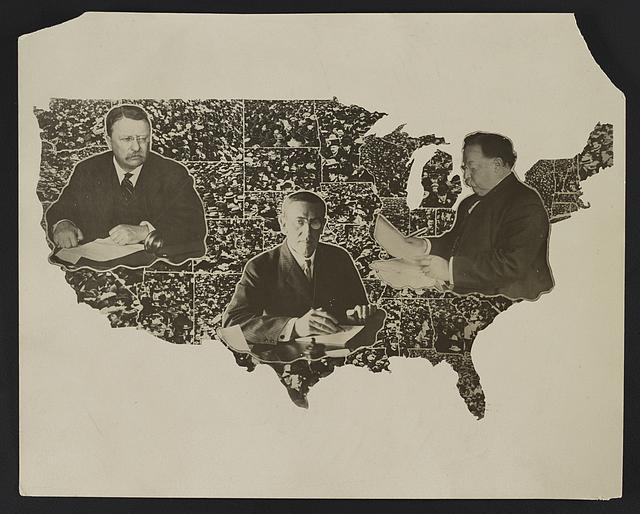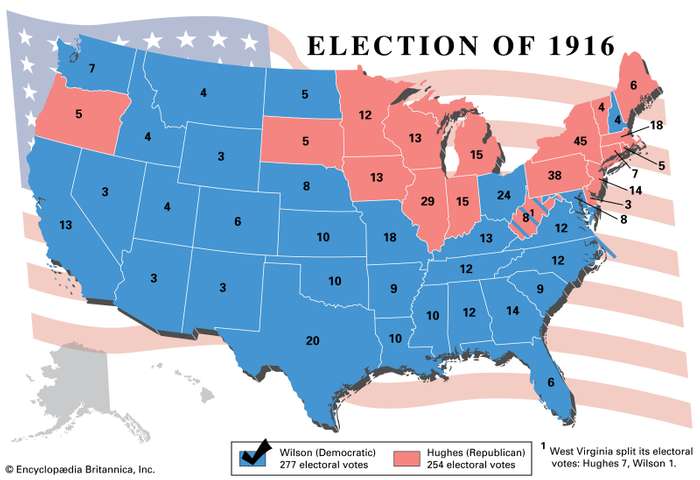
1912
In 1910, Wilson was picked by party bosses to run for Governor of New Jersey and won an overwhelming victory as a Democrat in a normally Republican state. As Governor of New Jersey, he disavowed the party bosses that had helped him get elected and established an impressive record of progressive political reforms. Due to Wilson’s legislative accomplishments as governor, he became a rising star in the democratic party and within two years he was the Democratic nominee for president in 1912.
The Presidential election of 1912 was a three-way race between former President Theodore “Teddy” Roosevelt, Roosevelt’s hand-picked successor and current President William Howard Taft, and future president Woodrow Wilson. Teddy Roosevelt abandoned the Republican party after Williams Howard Taft was renominated and ran for a third term as the Progressive parties candidate nicknamed “the Bull Moose Party”.
Taft ran on a largely conservative platform but stayed away from campaigning making the 1912 election a fight between the progressive ideas of Roosevelt and Wilson. Both candidates proposed progressive reforms in government such as new banking regulations and government regulations of monopolies with Wilson's political platform titled “The New Freedom” and Roosevelt's, “The New Nationalism”. They were very similar to each other, the only differences being that Wilson believed that tariffs should be lowered and corporate monopolies should be broken up while Roosevelt believed they should be left intact though heavily regulated.
With Taft and Roosevelt splitting the Republican vote, Wilson was able to win in an electoral landslide while only receiving a plurality of the popular vote. With Wilson’s election and a supporting majority in the House of Representatives and Senate, the progressive cause took center stage and Wilson became its standard-bearer.

1916
Woodrow Wilson became the first Democratic the president's of the united states since Andrew Jackson to be elected to two consecutive terms of office when he defeated Supreme Court Justice Charles Evans Hughes in the 1916 Presidential Election.
The election focused on the War that was raging in Europe and America’s place in it and the Mexican Revolution. The Democrats’ re-election campaign used the slogan, “He Kept Us Out of War,” advocating for military preparedness and neutrality. The Republican candidate Hughes criticized Wilson for not taking the “necessary preparations” to face the conflict in Europe, which only strengthened Wilson’s image as the anti-war candidate. Public sentiment leaned towards the British and French (Allied) forces but the country remained neutral towards the conflict in Europe.
Wilson won reelection by nearly 600,000 votes, 52% of the popular vote and 277 electoral votes. Within five months of being re-elected, the president who “kept us out of war” would lead the United States into World War I after Germany’s aggressive and unrelenting wartime tactics in 1917 left him no choice.
